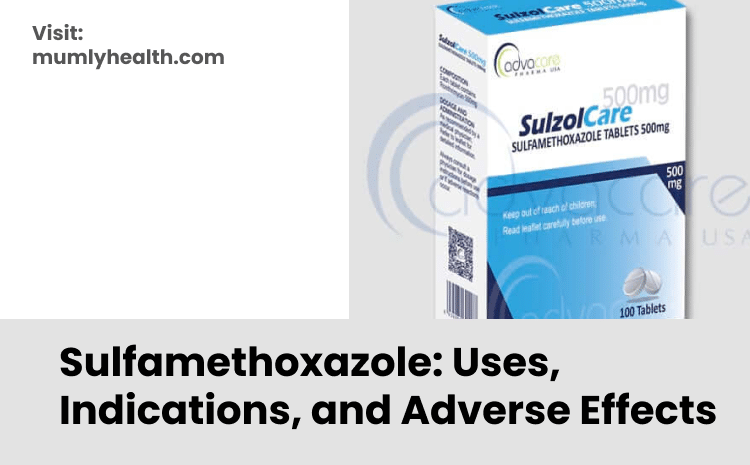Sulfamethoxazole and trimethoprim are tablet-based medications used to combat bacterial infections. Classified as antibiotics, these drugs can be taken orally with a glass of water, following the provided instructions.
What Is the Shelf Life of Sulfamethoxazole After Expiration?
The efficacy and safety of medications, including Sulfamethoxazole, can be compromised after their expiration date. It is generally advised not to use medications, especially antibiotics, beyond their expiration date, as their effectiveness may diminish, rendering them less capable of treating infections. Furthermore, the chemical composition of the medication can change over time, potentially leading to adverse effects.
If you possess expired medication, it is best to dispose of it properly in accordance with local guidelines or seek guidance from a healthcare professional or pharmacist regarding safe disposal and potential replacement. Always prioritize your health and safety by adhering to the recommended shelf life of medications.
About the Medication
This medication, known as Sulfamethoxazole; Trimethoprim (pronounced as suhl fuh meth OK suh zohl; trye METH oh prim), is employed to combat bacterial infections. It falls into the category of sulfonamide antibiotics and is ineffective against conditions like colds, the flu, or viral infections.
Information to Share with Your Healthcare Team Before Taking the Medication
You should inform your healthcare team if you have any of the following conditions:
- G6PD deficiency
- HIV or AIDS
- Kidney disease
- Liver disease
- Low platelet count
- Low red blood cell count
- Malnutrition
- Gastrointestinal issues such as colitis
- Thyroid disorders
- Any unusual or allergic reactions to sulfamethoxazole, trimethoprim, sulfa medications, other drugs, food items, dyes, or preservatives
- Pregnancy or attempts to become pregnant
- Breastfeeding
Read Also: Histamed: Everything you have to know
How to Administer the Medication
Take this medication orally with a glass of water, following the dosage instructions on the prescription label. Administer the medication at regular intervals.
Avoid exceeding the recommended dosage frequency. Complete the full course of medication as prescribed, even if your condition improves. Do not skip doses or discontinue the medication prematurely.
Consult your healthcare team regarding the use of this medication in children. While it may be prescribed for children as young as 2 months for specific conditions, certain precautions are necessary.
In case of an overdose, promptly contact a poison control centre or visit the emergency room.
What to Do If You Miss a Dose
If you forget a dose, take it as soon as you remember. If your next dose is nearly due, take only that scheduled dose. Do not double up on doses.
Possible Medication Interactions
Avoid concurrent use of this medication with Dofetilide. Additionally, this medication may interact with the following substances:
- Amantadine
- Birth control pills
- Specific medications for hypertension and heart disease
- Certain antidepressant medications, such as amitriptyline
- Certain diabetes medications, like glipizide or glyburide
- Medications for blood clot prevention or treatment, such as warfarin
- Cyclosporine
- Digoxin
- Diuretics
- Indomethacin
- Methotrexate
- Phenytoin
- Procainamide
- Pyrimethamine
- Zidovudine
It is crucial to provide your healthcare provider with a comprehensive list of all medications, herbs, over-the-counter drugs, and dietary supplements you are using. Additionally, inform them about your alcohol consumption, smoking habits, or use of illicit substances, as these factors can also impact potential interactions.
Precautions During Medication Use
Notify your healthcare team if your symptoms do not improve or worsen. Refrain from self-treating diarrhoea with over-the-counter products. If you experience prolonged or severe diarrhoea, contact your healthcare team.
This medication may lead to severe skin reactions that could manifest weeks to months after initiating treatment. If you develop symptoms such as fever, flu-like symptoms, and a rash, promptly contact your healthcare team.
The rash may initially appear red or purple and later progress to blisters or skin peeling. Alternatively, you may notice a red rash accompanied by facial, lip, or lymph node swelling in your neck or underarms.
The medication may increase your sensitivity to sunlight. Limit sun exposure, and if unavoidable, wear protective clothing and use sunscreen. Refrain from using sun lamps or tanning beds/booths.
Exercise caution when brushing, flossing your teeth, or using toothpicks, as infections or heightened bleeding tendencies may occur. If you undergo dental procedures, inform your dentist of your medication use.
Possible Side Effects
Promptly inform your healthcare team of the following side effects:
- Allergic reactions, including skin rash, itching, hives, and swelling of the face, lips, tongue, or throat
- Aplastic anaemia symptoms, such as unusual weakness or fatigue, dizziness, headaches, difficulty breathing, increased bleeding or bruising, fever, chills, cough, or a sore throat
- Dry cough, shortness of breath, or breathing difficulties
- Elevated potassium levels, lead to muscle weakness and a rapid or irregular heartbeat
- Symptoms of liver injury, such as pain in the upper right abdomen, loss of appetite, nausea, light-coloured stools, dark yellow or brown urine, yellowing of the skin or eyes, and unusual weakness or fatigue
- Symptoms of low blood sugar (hypoglycemia), such as tremors or shaking, anxiety, sweating, cold or clammy skin, confusion, dizziness, and a rapid heartbeat
- Low sodium levels, may cause muscle weakness, fatigue, dizziness, headache, and confusion
- Rash, fever, and swollen lymph nodes
- Redness, blistering, peeling, or loosening of the skin, even inside the mouth
- Severe diarrhoea accompanied by fever
- The appearance of small, pus-filled skin bumps
- Unusual vaginal discharge, itching, or odour
Conversely, the following side effects typically do not require medical attention but should be reported if they persist or cause discomfort:
- Loss of appetite
- Nausea
- Vomiting
